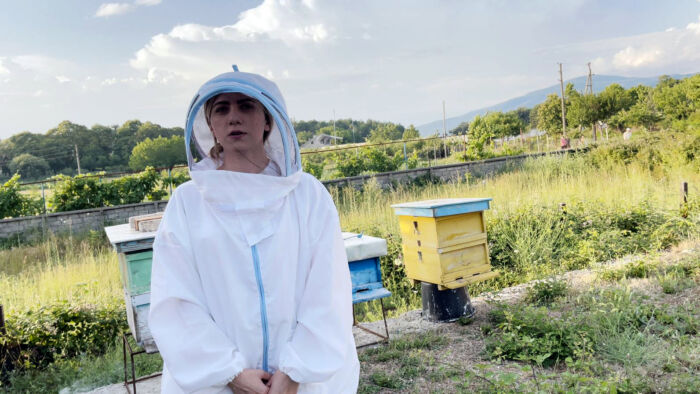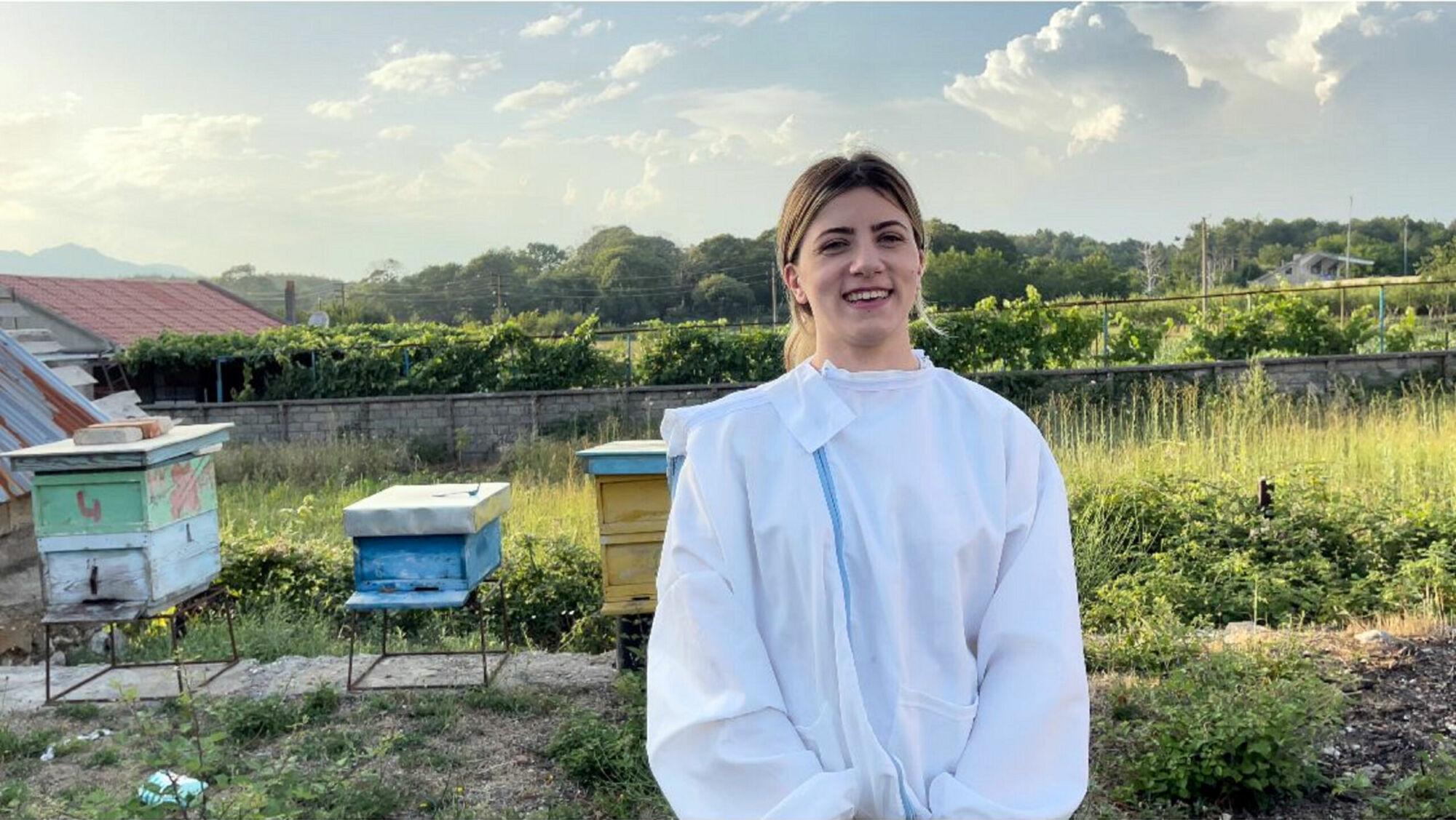“As a teen, I was very fascinated by how bees produce honey. My parents have been professional beekeepers for years and they realized that beekeeping was more than just a curiosity for me,” says 23 years old Drivalda, a young beekeeper and a student of architecture and urban planning.
Recalling these first days of getting involved in beekeeping she says that she was feeling very proud to be able to help out her parents with the bees.
“I started the beekeeping when I was only 13 years old, so it’s been a decade now. Over the years my knowledges in this field increased quickly, so from a person who wondered how the honey is produced I have become a young beekeeper,” says Drivalda.
Her family’s beekeeping beginnings were humble. They started with only two, but now they have over 60 beehives. “My brothers are also very helpful, and luckily neither of us is allergic to bees, so we can accomplish every task my parents assign to us,” says Drivalda.
The work with the bees is demanding and time-consuming, but as Drivalda puts it – it’s also rewarding.
“I believe that the most important part of being a beekeeper is the moment where you get valued for the work you have done over the months. That’s why honey collection is our favourite thing to do,” says Drivalda.
While building the skill sets essential for maintaining the beehives, Drivalda also shares some of the challenges that she experienced over the years that come when working with the bees.
“The lack of organised market constitutes a serious obstacle as we have to look hard to get to reliable clients. The time that young beekeepers spend to find a buyer keeps them away from dedicating more time to the bees and especially their health. Securing the sale from the beginning will give us more time to work on the expansion and improve the quality service towards the clients,” she says.

However, she points out that thanks to her hard work and good quality honey she now has regular customers. “I think that the demand for honey is growing over the years because people are understanding its health benefits. Honey consumption offers a large number of health benefits among all age groups of people.
Beekeeping can certainly be practiced as a safety net, providing households with extra income from the sales of honey and other beehive products.
“As a student in one of the most expensive universities in Albania, beekeeping was of great help to me over these four years,” says Drivalda acknowledging that she got some good income from it to support herself.
In rural communities such as mountainous Puka, small or large-scale beekeeping contributes significantly to livelihood security, economic empowerment, food security, biodiversity and environmental conservation.
“Puka is a place with a lot of natural resources, and it would be a shame if they’re not used properly. The warmer temperatures in late fall and winter are extending the period when bees are foraging. But my concern is the increasing amounts of habitat loss resulting in decline in bee abundance. Urbanisation in north Albania is not a problem nowadays, but it surely will be in the near future. Therefore, it is our responsibility to keep the balance,” says Drivalda.
Maintaining this balance is something that is passionate about even in her future professional occupation as architect and urban planner.
“Studying in the city and being born and raised in a natural environment such as Puka, has helped me to understand the importance of every species and how to plan or built places that are eco-friendly,” says Drivalda.
But beekeeping will remain her big love. “After I finish university I intend to continue this family tradition. If not all the year, summer will definitely be dedicated to beekeeping.”
It is clear that beekeeping has brought many advantages to the local population in Puka. But most certainly one of the greatest achievements of this focus project implemented by We Effect’s partner organisation AgroPuka and supported by Stockholm Consumer Cooperative Society is that it has fostered a desire among the young people in Puka to turn beekeeping into a business that will generate income for them, improving their livelihoods and family food security.
